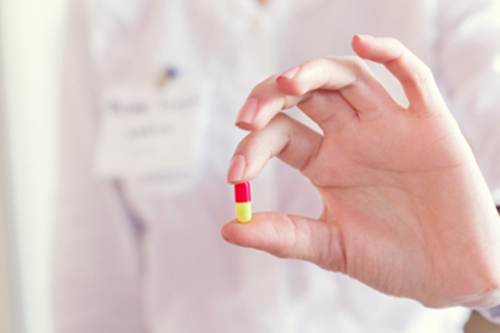Sorriso's Path to Oral Biologics Dosing Is Through the Gut

Delivering antibody-based therapeutics orally has long been considered a scientific paradox — biologics simply don't survive the proteolytic gauntlet of the gastrointestinal (GI) tract. But one biotech company, Sorriso Pharmaceuticals, is showing that with the right protein engineering and manufacturing platform, oral delivery may be not only possible but scalable.
Their lead candidate, SOR102, is a bispecific single-domain antibody targeting TNFα and IL-23, designed to treat ulcerative colitis. Following promising results in a Phase 1b study, the company is preparing for a Phase 2 clinical trial and scaling up manufacturing to meet demand.
At the core of Sorriso's progress is a strategy combining high-yield yeast expression and room-temperature stable spray drying — a blend of biologics and small molecule-style processing that could help unlock the future of oral antibodies.
Why Yeast?
Sorriso chose a yeast-based expression system over traditional mammalian platforms like CHO or HEK. Why?
Scalability – Yeast enables 10x jumps in production with minimal risk.
Regulatory Simplicity – Their yeast strain is GRAS (Generally Recognized as Safe) by the FDA, meaning no viral clearance steps are required.
Volume – With no dose-limiting toxicity, oral biologics may need to be administered at high doses, requiring large quantities of drug substance.
Their expression scale moved from 3,000 L to 35,000 L in a single step — an uncommon leap in biomanufacturing. For comparison, the largest monoclonal antibody (mAb) fermentation tanks rarely exceed 20,000 L.
From Protein to Pill
What makes this pipeline exceptional is the intersection of biologics and solid oral dosage manufacturing.
Sorriso's "Vorabody" single-domain antibodies — engineered for protease resistance and thermal stability — are processed into a spray-dried powder, which forms the basis of their oral dosage form. The product remains stable at room temperature, a major advantage in global distribution.
This formulation bridges the biologics manufacturing world with the oral drug product world — a rare but promising combination.
From Local Activity to Future Systemic Delivery
Though SOR102 is designed to act locally in inflamed GI tissue, low-level systemic absorption is still observed. This is intentional — the goal is to maximize local tissue concentration while limiting widespread exposure, believed to be key for diseases like inflammatory bowel disease (IBD).
Looking forward, Sorriso's team plans to explore systemic applications by incorporating absorption enhancers, opening the door to oral biologics for diseases beyond the gut.
Why This Matters for the VHH Community
While Sorriso doesn't explicitly describe their antibodies as VHHs, the single-domain, bispecific structure of SOR102 — combined with robust expression and formulation tolerances — mirrors many principles central to VHH (nanobody) engineering.
At AlpalifeBio, we've long believed that small, stable, and customizable antibody formats like VHHs represent the future of biologics. Sorriso's approach shows how smart protein design + scalable bioprocessing can finally make oral antibody therapies feasible — especially for indications that benefit from local delivery.
Final Thoughts
Oral biologics were once viewed as science fiction. But with innovations in protein engineering, scalable yeast platforms, and process integration, companies like Sorriso are clearing a new path — starting in the gut.
For those of us in the VHH space, it's a signal: the future of antibody therapeutics may not be infused or injected — it might just be swallowed.
Resource: BIOPROCESS ONLINE